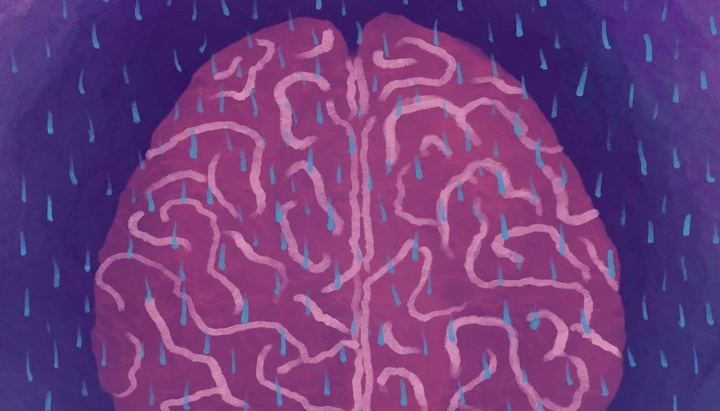A Restful Night's Sleep Refreshes the Mind Similar to How a Dishwasher Cleans Dishes – Yet Caution is Advised with Sleep Medications.

View pictures in App save up to 80% data.
Recent studies indicate that a restful night's sleep can refresh your mind, much like starting a dishwasher before sleeping and waking up to find everything tidy and organized in your thoughts.
A team of scientists from around the world explains the process as a method of clearing out the waste that accumulates in the brain while we are awake.
Their research also sheds light on how sleeping medications might interfere with the brain's "brainwashing" mechanisms, which could have lasting impacts on cognitive abilities.
Scientists have discovered that the brain features an inherent waste clearance mechanism known as the 'glymphatic system.' This system facilitates the circulation of fluid within the brain and spinal cord to help eliminate waste.
This process aids in eliminating harmful proteins that create sticky plaques associated with neurological conditions like Alzheimer's disease; however, the underlying mechanisms that propel this system have been elusive until recently.
Researchers at the University of Copenhagen in Denmark discovered that a molecule known as norepinephrine is crucial for the brain's cleansing process in mice.
In the deep stages of sleep, the brainstem emits small bursts of norepinephrine approximately every 50 seconds.
The lead researcher of the study, Professor Maiken Nedergaard from the University of Rochester in New York, elucidated that norepinephrine causes blood vessels to constrict, producing slow pulsations that establish a rhythmic movement in the adjacent fluid, facilitating the removal of waste.
She remarked, “It’s similar to starting the dishwasher before heading to sleep and waking up to a refreshed mind.”
"We're fundamentally exploring the factors that influence this mechanism and aiming to characterize restorative sleep through the lens of glymphatic clearance."
In their quest for clues, she and her team investigated the effects of sleep on mice brains. Their primary focus was on the connection between norepinephrine levels and blood circulation during deep sleep pha
Recommend
Scientists stumble upon a surprising finding in their efforts to enhance desalination processes: 'Remarkably convenient and budget-friendly'
2025-03-24 20:30:53
2025-03-24 20:30:53
During a hike in the Swiss Alps, he stumbled upon an unusual 20th-century wagon embedded in a receding glacier.
2025-03-24 20:30:53


2025-03-24 20:30:53
SUPREME-QG: Space-Based Ultra-Precise Assessment of the Equivalence Principle Indicators in Quantum Gravity
2025-03-24 20:30:53


2025-03-24 20:30:53
Let $\Gamma$ be a finite group that contains an involution. We assume that the cardinality of the first cohomology group
2025-03-24 20:30:53


2025-03-24 20:30:53
How to observe the rare comet that will be visible from Earth this month
2025-03-24 20:30:53
2025-03-24 20:30:53
Existing Neuroanatomical Differences Associated with Substance Use in Children 4045
2025-03-24 20:30:53


2025-03-24 20:30:53
BepiColombo Successfully Concludes Last Flyby of Mercury, Set for Orbital Mission in 2026
2025-03-24 20:30:53
2025-03-24 20:30:53
Inflatable Starshade for Habitable Exoplanets
2025-03-24 20:30:53


2025-03-24 20:30:53
In 2024, X-class solar flares reached unprecedented levels and may increase even more this year; however, experts suggest that the sun isn't solely responsible for this phenomenon.
2025-03-24 20:30:53


2025-03-24 20:30:53
Amendment 93: The deadline for the A.14 Integrated Water Field Campaign Proposal has been postponed to February 12, 2025.
2025-03-24 20:30:53


2025-03-24 20:30:53